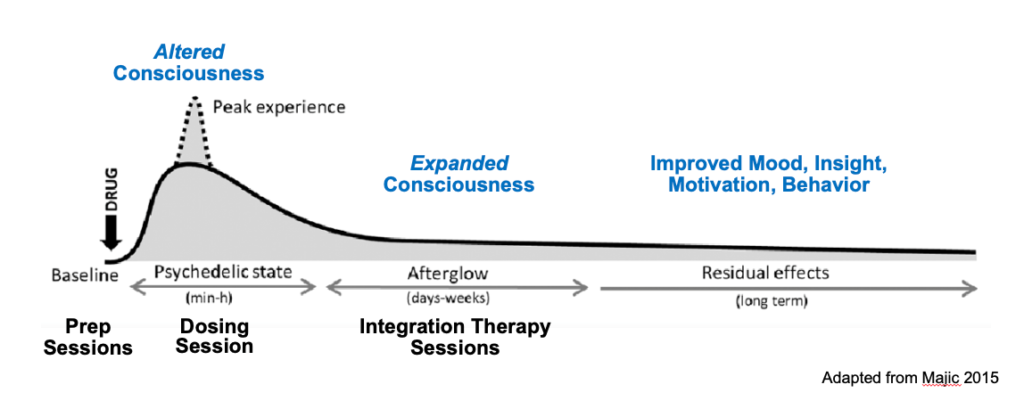Ketamine therapy has gained significant attention in recent years for its potential in treating various mental health conditions, especially depression and anxiety disorders. As an expert in the field, I will provide you with a detailed evaluation of the safety and efficacy of ketamine therapy. We’ll explore its mechanism of action, the conditions it is commonly used for, potential side effects, and the latest research on its effectiveness. By the end of this article, you will have a comprehensive understanding of ketamine therapy and be able to make informed decisions regarding its potential as a treatment option.
The Science Behind Ketamine Therapy
Ketamine is a dissociative anesthetic that has been used for decades in medical settings, primarily as an anesthetic agent. However, it was later discovered that ketamine also has potent antidepressant effects. The exact mechanism of action for its antidepressant properties is still being studied, but it is believed to involve the modulation of certain neurotransmitters in the brain, particularly glutamate. Glutamate is a major excitatory neurotransmitter associated with mood regulation, and ketamine’s influence on glutamate receptors is thought to play a key role in its antidepressant effects.

Understanding the Safety Profile of Ketamine Therapy
Potential Side Effects of Ketamine Therapy
As with any medical intervention, ketamine therapy comes with potential side effects. These side effects can vary from person to person and are generally mild and short-lived. They may include:
- Nausea
- Dizziness
- Headache
- Fatigue
- Increased heart rate
It’s important to note that the administration of ketamine in a controlled medical setting by trained professionals significantly reduces the risk of adverse effects. The doses used for therapeutic purposes are much lower than those used for anesthesia, further minimizing potential risks.
Long-Term Safety Concerns
While ketamine therapy has shown promising results in the treatment of depression and other conditions, concerns about its long-term safety remain. Prolonged and frequent use of ketamine may lead to bladder problems, a condition known as ketamine-associated uropathy. It’s essential for patients considering ketamine therapy to discuss the potential risks and benefits with their healthcare provider.

Conditions Treated with Ketamine Therapy
Major Depressive Disorder (MDD)
Evaluating the safety and efficacy of ketamine therapy in treating Major Depressive Disorder (MDD) has been a major focus of research in recent years. Studies have shown that ketamine can lead to rapid improvements in depressive symptoms, even in individuals who have not responded to traditional antidepressant medications. The effects of ketamine are typically felt within hours to a few days after administration, providing relief for those suffering from severe depression.
Post-Traumatic Stress Disorder (PTSD)
Ketamine therapy is also being explored as a potential treatment for Post-Traumatic Stress Disorder (PTSD). The drug’s ability to rapidly reduce symptoms of depression and anxiety makes it a promising option for individuals with PTSD who struggle with these emotional burdens. However, further research is needed to fully understand its long-term efficacy and safety in this population.
Treatment-Resistant Depression (TRD)
Evaluating the safety and efficacy of ketamine therapy for Treatment-Resistant Depression (TRD) is of particular interest, as this condition poses significant challenges for both patients and mental health professionals. TRD refers to depression that does not respond adequately to traditional antidepressant treatments. Ketamine has shown remarkable success in providing relief for individuals with TRD, offering new hope to those who have exhausted other treatment options.
The Role of Ketamine Therapy in Suicidal Ideation
One of the most promising aspects of ketamine therapy is its potential to rapidly reduce suicidal ideation in individuals experiencing acute and severe depression. Standard antidepressant medications may take weeks to show effects, but ketamine has been shown to provide almost immediate relief from suicidal thoughts. This property of ketamine therapy can be life-saving, especially in situations where immediate intervention is crucial.
Evaluating the Efficacy of Ketamine Therapy in Chronic Pain Management
Beyond its use in mental health conditions, ketamine therapy has also been explored for its potential in chronic pain management. Ketamine’s analgesic properties can help alleviate pain in conditions such as complex regional pain syndrome (CRPS) and neuropathic pain. However, it’s essential to weigh the risks and benefits carefully before considering ketamine for chronic pain treatment.
Addressing Ketamine Abuse and Misuse
While ketamine has shown tremendous promise as a therapeutic agent, its misuse and abuse pose significant concerns. In some settings, ketamine is used recreationally, leading to dangerous consequences. It’s crucial for healthcare professionals and policymakers to strike a balance between providing access to ketamine therapy for those who may benefit from it while implementing measures to prevent its unauthorized use.

FAQs
Can ketamine therapy cure depression completely?
Ketamine therapy can provide significant relief for individuals with depression, even those who have not responded to traditional antidepressants. However, it is not a cure for depression. The effects of ketamine are generally short-term, and additional maintenance treatments may be required to sustain its benefits.
Is ketamine therapy safe for children and adolescents?
The safety and efficacy of ketamine therapy in children and adolescents are still being studied. As of now, ketamine is not typically recommended for use in this population due to potential risks and lack of sufficient data.
How long do the antidepressant effects of ketamine last?
The antidepressant effects of ketamine can vary from person to person. Some individuals may experience relief for a few days, while others may have longer-lasting effects for several weeks. Follow-up treatments may be necessary to maintain the benefits.
Can ketamine therapy be combined with other medications?
In some cases, healthcare providers may recommend combining ketamine therapy with other medications or therapies to enhance its effects. However, this decision should be made by a qualified healthcare professional based on the individual’s specific medical needs.
Is ketamine therapy covered by insurance?
Insurance coverage for ketamine therapy can vary depending on the country, state, or insurance provider. It’s essential to check with your insurance company to determine if ketamine therapy is covered and what conditions apply.
Are there any alternative treatments to ketamine therapy?
Yes, there are alternative treatments for depression and other mental health conditions. Some of these include traditional antidepressant medications, psychotherapy, and other emerging therapies like transcranial magnetic stimulation (TMS) and electroconvulsive therapy (ECT). It’s essential to discuss all available options with a healthcare professional to determine the most suitable treatment plan.
Conclusion
Evaluating the safety and efficacy of ketamine therapy is an ongoing and dynamic process, with new research continuously expanding our understanding of this innovative treatment option. Ketamine has shown great promise in providing rapid relief for individuals with severe depression and other mental health conditions, offering a glimmer of hope to those who have been suffering without respite. However, it’s essential to approach ket
amine therapy with caution, considering its potential side effects and the need for further research to ensure its long-term safety.
As with any medical treatment, it is crucial to work closely with a qualified healthcare provider when considering ketamine therapy. A comprehensive evaluation of the individual’s medical history, current medications, and specific mental health condition will help determine if ketamine therapy is a suitable option. Additionally, healthcare professionals can tailor the treatment plan to meet the patient’s unique needs and ensure the best possible outcomes.
Furthermore, it’s essential to recognize that ketamine therapy is not a standalone solution for mental health conditions. It should be integrated into a broader treatment approach that may include therapy, lifestyle changes, and support systems. The goal is to achieve holistic well-being and improve the patient’s overall quality of life.
As research on ketamine therapy continues to advance, it is crucial for healthcare professionals, policymakers, and the public to stay informed about the latest developments. Collaboration among researchers, mental health advocates, and medical experts will further our understanding of ketamine’s potential benefits and risks.
In conclusion, evaluating the safety and efficacy of ketamine therapy is an ongoing journey that holds promise for transforming mental health treatment. While ketamine has demonstrated rapid and significant relief for individuals with depression and other mental health conditions, its long-term safety and optimal use require further investigation. As an expert in the field, I encourage individuals to seek guidance from qualified healthcare providers when considering ketamine therapy and to engage in open conversations about their treatment options.
Remember, each individual’s journey towards healing is unique, and there is no one-size-fits-all approach. By combining personalized care, evidence-based therapies, and the latest advancements in medical science, we can continue to enhance the lives of those struggling with mental health challenges.


